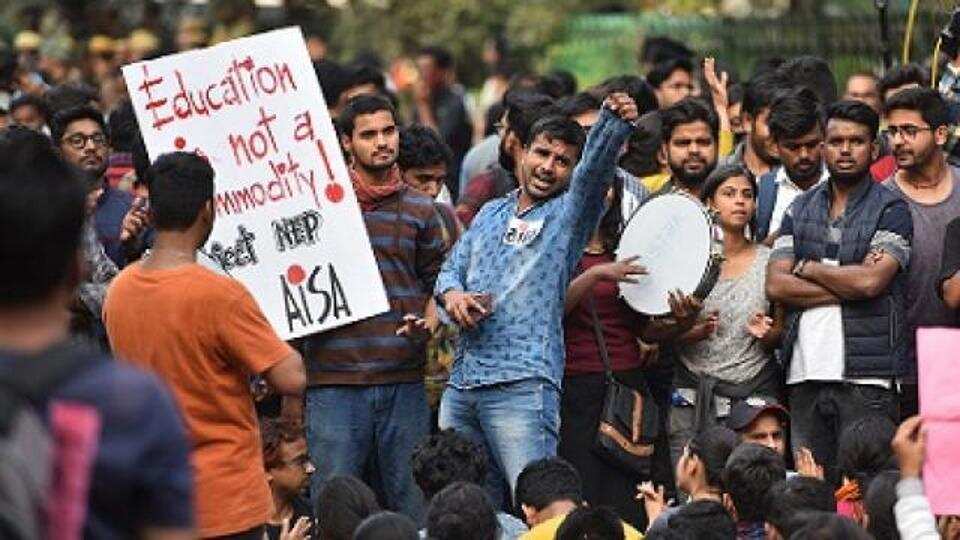Times Higher Education (THE) has released its latest rankings of the institutions in emerging economies. The top three spots are occupied by the Chinese universities- Tsinghua University, Peking University and Zhejiang University.
On the other hand, South Africa and Saudi Arabia boast of the highest average score showing how the two countries are improving University education at a brisk pace. Meanwhile, 11 Indian Universities have managed to break into the top 100. This is India’s highest representation in the ranking since 2015.
What doesn’t come as a surprise is the fact that India’s premiere Universities- the Indian Institutes of Technology (IITs), Indian Institute of Science (IISc) and Institute of Chemical Technology (ICT) are the ones breaking into the top 100.
However, a surprise entry was Coimbatore’s Amrita Vishwa Vidyapeetham, which has jumped 51 spots in rankings compared to last year. Therefore, its entry into the top 100 is no less than a dramatic achievement. Earlier, the university had also featured in the Eminence scheme of the HRD Ministry.
IISc ranks 16th in the list followed by IIT Kharagpur and IIT Bombay at the 32nd and 34th spot respectively. Other IITs in the list are- IIT Delhi, IIT Roorkee, IIT Indore, IIT Madras, IIT Ropar and IIT Kanpur.
Speaking about the performance of Indian Universities, Phil Baty, chief knowledge officer, THE said, “There has long been a debate on the success of Indian universities in world rankings, and for too long they have been seen as underperforming on the global stage. The Emerging Economies University Rankings 2020 suggests that real progress is being made by a number of institutions in a number of metrics across our robust methodology, and could mark an exciting turning point for Indian higher education, enabled in part by the Institutes of Eminence scheme.”
While Indian universities seem to be rising at a global level as illustrated by THE rankings, one important observation that comes out is that all the top Indian universities are Science & Technology universities with the exception of Amrita Vishwa Vidyapeetham which is an multi-disciplinary University.
None of the Universities engaged predominantly in liberal arts and humanities like the JNU, Jamia Milia Islamia University, etc. have made a mark at the THE rankings.
However, this doesn’t really come as a surprise. IITs and other such institutes imparting professional education in Science-Technology-Engineering-Mathematics (STEM), law, and management courses are driven towards academics and real research work.
On the other hand, the humanities and social sciences universities, it seems, have nothing more to do than launching protests and especially since the Modi government came to power, such universities have been protesting almost against every single law. They have become hotbeds of political activism rather than becoming centres of quality education and research.
We saw a glimpse of this protest culture during the implementation of the Citizenship Amendment Act (CAA), when all universities engaged in liberal arts, like- JNU, Aligarh Muslim University (AMU), Jamia Milia Islamia (JMI), Jadavpur University and Tata Institute of Social Sciences (TISS) started protesting vehemently.
The Amendment legislation was supposed to undo historical injustice to those born on the wrong side of history, by providing citizenship to members of minority communities in Pakistan, Afghanistan and Bangladesh- all self-declared Islamic states- that have fled religious persecution.
On the other hand, the elite institutions, including IITs and IIMs supported the Citizenship Act (CAA), instead of protesting imprudently. In fact, there is a worldwide pattern of liberal arts and humanities courses losing steam at university levels. Governments remain reluctant to invest in such institutions as the return on investing in such universities is low, and they also create unnecessary ruckus.
THE rankings only affirm this trend of the professional institutions imparting Science & Technology courses performing far better than the liberal arts and humanities institutes who have nothing better to do than protesting.
